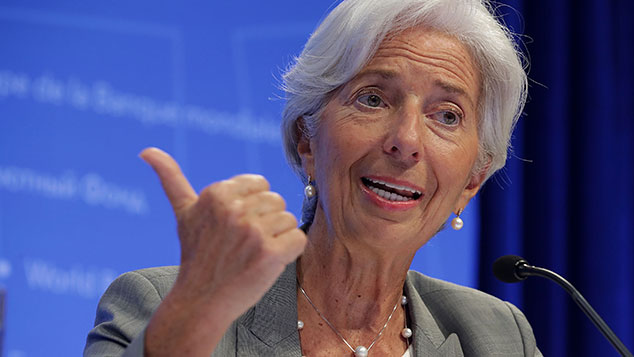
Christine Lagarde, the manager director of the International Monetary Fund (IMF), had some good news to report when she turned up in Davos three weeks ago, says Larry Elliott in The Guardian. The IMF’s latest forecasts show that growth is stronger than expected almost everywhere. But Lagarde also came with a warning not to get too carried away about the health of the global economy. “There is also significant uncertainty in the year ahead,” she said. “The long period of low interest rates has led to a build up of potentially serious financial-sector vulnerabilities.”
“The IMF does not always get it right, but on this occasion Lagarde nailed it,” says Elliott. Last week stockmarkets around the world fell sharply as investors started to fret about the potential consequences if rates begin to rise, with the Dow Jones falling by more than 1,000 points on two separate days.
Bigger risks lie ahead
Although the markets have since stabilised, the wobbles look like “a potent warning sign of bigger risks that lie ahead”, says Gillian Tett in the Financial Times. The financial system faces three key problems. First, cheap money has fuelled a rise in leverage. Second, low rates have fostered financial engineering. Third, regulators are finding it difficult to keep track of the proliferating and fragmenting risks. “These issues will not necessarily spark a full-blown crisis… [but] as rates rise we will almost certainly see more financial shocks.”
“What is unsettling is how little it took to puncture this balloon,” says Ambrose Evans-Pritchard in The Daily Telegraph: “a whiff of wage inflation and a 40-point jump in the US-year Treasury bond”. That is a sign of how sensitive the world has become to changes in interest rates, “a dangerous inflexion point now that debt ratios have risen by 51 percentage points since the peak of the last bubble to a record 327% of GDP”. Navigating the turns in the cycle will not be easy in this environment.
No shelter from the storm
To make it worse, “strategies that have protected investors in past sell-offs aren’t doing so now”, says Aaron Back in The Wall Street Journal. Exchange-traded funds with “defensive” strategies and large holdings in sectors such as consumer staples and utilities fell sharply during the sell-offs. These type of stocks usually hold up well during an economic downturn or a market panic – but are now widely held by investors as substitutes for lower-yielding bonds. “If rates keep rising, this defence won’t hold.”
The end of the short Vix trade
“Until last week the Vix was among the calmest features of the international money markets,” says Phillip Inman in The Observer. “Then suddenly it exploded into life to register the largest one-day rise in its history.” For 18 months, the “fear index” had been virtually moribund. Then last Monday it surged from a low of ten points to above 30 (indicating serious stress in the markets), and then rose to above 50.
The move came as US employment data, released on Friday, suggested that wage inflation may finally be picking up, which may in turn push the Federal Reserve to raise interest rates more rapidly than markets had hoped. Investors, unnerved by the prospect of an end to cheap money, fled the market, leaving the S&P 500 to experience its biggest one-day drop since 2011. Markets bounced back, but various exchange-traded products that allowed traders to bet on the Vix index remaining consistently low had almost all of their value wiped out.
At first sight the losses look like little more than “a familiar story of greedy but naive retail investors lured by predatory Wall Street into a complex financial product” with the promise of returns that are too good to be true, says Edward Chancellor on Breakingviews. However, the “low volatility environment” has infected “the entire investment world”. The return of volatility could have much further-reaching consequences.